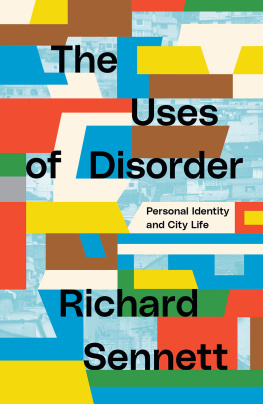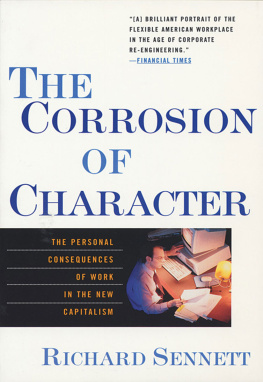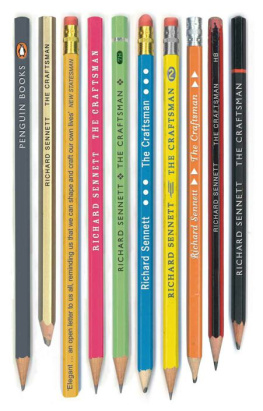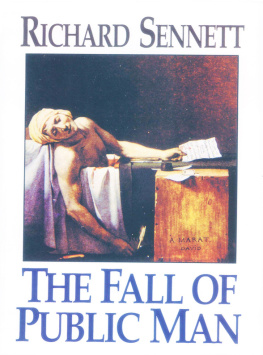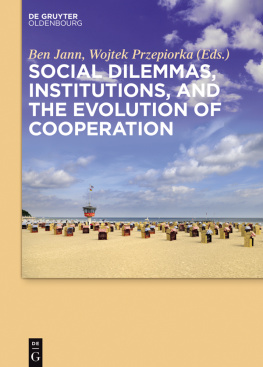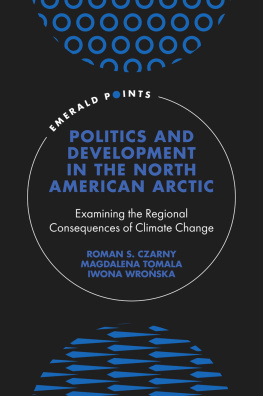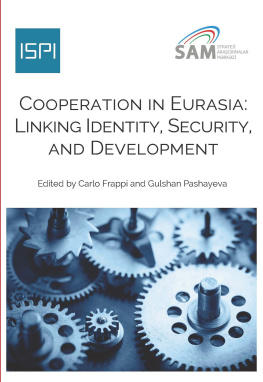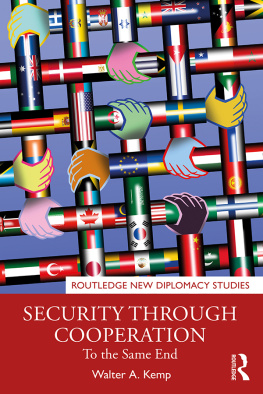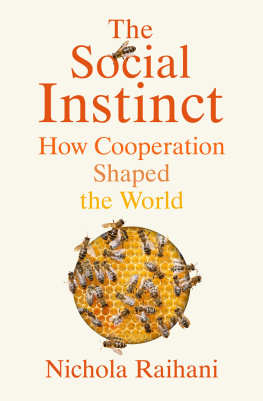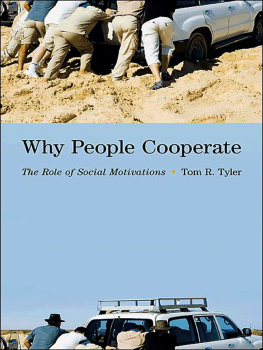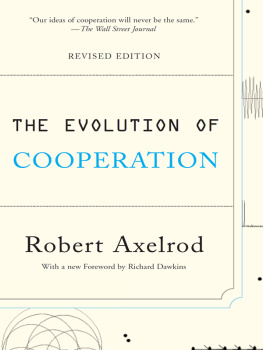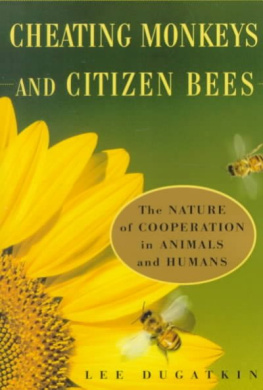Together
RICHARD SENNETT
Together
The Rituals, Pleasures and
Politics of Cooperation
Yale
UNIVERSITY PRESS
New Haven & London
First published 2012 in the United States by Yale University Press
and in Great Britain by Allen Lane, an imprint of Penguin Books.
Copyright 2012 by Richard Sennett.
All rights reserved.
This book may not be reproduced, in whole or in part, including illustrations, in any form (beyond that copying permitted by Sections 107 and 108 of the U.S. Copyright Law and except by reviewers for the public press), without written permission from the publishers.
Yale University Press books may be purchased in quantity for educational, business, or promotional use. For information, please e-mail sales.press@yale.edu (U.S. office) or sales@yaleup.co.uk (U.K. office).
Set in 10.5/14pt Linotype Sabon.
Typeset by Jouve (UK), Milton Keynes.
Printed in the United States of America.
Library of Congress Control Number: 2011933873
ISBN 978-0-300-11633-5 (hardcover : alk. paper)
A catalogue record for this book is available from the British Library.
This paper meets the requirements of
ANSI/NISO Z39.48-1992 (Permanence of Paper).
10 9 8 7 6 5 4 3 2 1
for
Stuart Proffitt
and
Elisabeth Ruge
Contents
The Cooperative Frame of Mind
PART ONE
Cooperation Shaped
Reformers in Paris Explore a Puzzle
Competition and Cooperation in Nature and Culture
How the Reformation Transformed Cooperation
PART TWO
Cooperation Weakened
Imposed and Absorbed in Childhood
How Social Relations Become Embittered at Work
The Psychology of Withdrawal
PART THREE
Cooperation Strengthened
Making and Repairing
Reformation Conversations Put to Practical Use
Practising Commitment
Montaignes Cat
Preface
A few years ago I decided to write a trio of books about the skills people need to sustain everyday life. Ive spun out theories my own entire life, but have tired of theorizing as a self-contained pursuit. And Ive the sense, as the world clogs up with physical stuff, that we dont know how to use material objects and machines well. So I wanted to think harder about ordinary things not a new pursuit, since many philosophers have explored the skills of everyday experience, but a subject new to me in old age.
I began with a study of craftsmanship, the quest to make physical things well. The Craftsman tried to show how the head and hand are connected, and more, the techniques which enable people to improve, whether they are engaged in a manual or mental activity. Doing something well for its own sake, I argued, is a capacity most human beings possess, but this skill is not honoured in modern society as it should be. The craftsman in all of us needs to be freed.
While writing this study I was struck again and again by a particular social asset in doing practical work: cooperation. Cooperation oils the machinery of getting things done, and sharing with others can make up for what we may individually lack. Cooperation is embedded in our genes, but cannot remain stuck in routine behaviour; it needs to be developed and deepened. This is particularly true when we are dealing with people unlike ourselves; with them, cooperation becomes a demanding effort.
My focus in Together is on responsiveness to others, such as listening skills in conversation, and on the practical application of responsiveness at work or in the community. Theres certainly an ethical aspect to listening well and working sympathetically with others; still, thinking about cooperation just as an ethical positive cramps our understanding. Just as the good craftsman-scientist may devote his energies to making the best atom bomb possible, so people can collaborate effectively in a robbery. Moreover, though we may cooperate because our own resources are not self-sustaining, in many social relations we do not know exactly what we need from others or what they ought to want from us.
Ive thus sought to explore cooperation as a craft. It requires of people the skill of understanding and responding to one another in order to act together, but this is a thorny process, full of difficulty and ambiguity and often leading to destructive consequences.
The last lap of my project lies before me, a book on making cities. They arent made very well today; urban design is a craft in peril. Physically, too much urban design is homogeneous and rigid in form; socially, modern built forms frequently take only a faint imprint of personal and shared experience. These are unfortunately familiar complaints. Ill try to draw on the work in previous volumes to address them; my hope is that understanding material craftsmanship and social cooperation can generate new ideas about how cities might become better made.
Ive baptized these three books the homo faber project, drawing on the ancient idea of Man as his or her own maker a maker of life through concrete practices. My quest is to relate how people shape personal effort, social relations and the physical environment. I emphasize skill and competency because in my view modern society is de-skilling people in the conduct of everyday life. We have many more machines than our ancestors but less idea of how to use them well; we have greater conduits between people thanks to modern forms of communication, but less understanding of how to communicate well. Practical skill is a tool rather than a salvation, but, lacking it, issues of Meaning and Value remain abstractions.
The homo faber project does have an ethical centre, focused on just how much we can become our own masters. In social and personal life we all come up against the limits on desire and will, or the experience of other peoples needs which cannot be reconciled with our own. This experience ought to teach modesty, and so promote an ethical life in which we recognize and honour what lies beyond us. Still, no one could survive as a passive creature without will; we have at least to attempt to make the way we live. As a philosopher, Im interested throughout these studies in that fraught, ambiguous zone of experience where skill and competence encounter resistance and intractable difference.
Though my three volumes are meant to add up to a whole, each is written to stand on its own. They are written for the intelligent general reader who quite properly asks: why does it matter? Why is it interesting? Ive tried to eliminate academic bickering a blood sport which is never of much value to the general reader from the pages of these books, or have consigned scholarly quarrels to the notes.
Lists of acknowledgement are becoming like telephone directories. On my shortlist of thanks is, first and foremost, my spouse Saskia Sassen. She has pushed me to be not too literary; Ive tested particular case studies on her to see when she becomes bored. I want to thank my editor in Britain, Stuart Proffitt, and, in Germany, Elisabeth Ruge, both of whom have pushed me to be more literary. They are editors who edit, a lost craft. I owe a practical debt to my assistants Hillary Angelo and Dom Bagnato, both fiends for making things work. So, too, is Elizabeth Stratford, who copy-edited this book. I owe intellectual debts to two long-standing friends, Craig Calhoun and Bruno Latour, the first a passionate corrector of mental error, the second a laid-back suggester of it. Finally I want to thank a new friend, Archbishop Rowan Williams, whose writings span theology, philosophy and art. His religion is not mine, but his understanding of what books are for has inspired me.
Together

Next page

